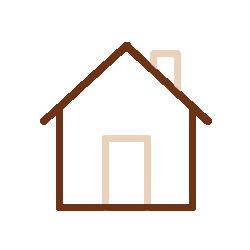We’re here to make this process as simple for you as possible
For a first time home buyer, purchasing a new home can be very exciting, and at the same time, creates an abundance of questions. We want to help to make this process as simple for you as possible by answering all your questions and helping you to understand how the mortgage process works. The information you are about to read will not only educate you on the basics of home mortgage loans, but will also help you to prevent making mistakes that may be common among the first time home buyer, potentially saving you time and thousands of dollars.

Learn How to Avoid Making Common First Time Home Buyer Mortgage Mistakes
First Time Mortgage Mistake #1 – Home Shopping First Without Finding Out How Much You Can Afford And Getting Pre-Approved
The first step when shopping for your new home is to find out exactly how much you can afford and how much of a mortgage you will get approved for. The main factors that mortgage lenders look at are your credit history, income, down payment and current monthly debt obligations.
Advantages of getting pre-approved for your mortgage:
You know exactly how much you can afford before you go shopping
More power in a multiple offer situation (you will be able to waive the financing condition much quicker than non-pre-approved buyers)
Guaranteed mortgage rate hold for 120 days. If the mortgage rates drop during this period, we will ensure you get the lower mortgage rate. If the rates go up, you are covered!
Once we fill out your mortgage application, we will submit it to a lender and get you pre-approved for the lowest mortgage rate you qualify for. This process can take anywhere from a couple of hours to a couple of days, depending on the situation.
First Time Mortgage Mistake #2 – Getting Pre-Qualified And Not Pre-Approved
It is not uncommon for a first time home buyer in Canada to be told that they ‘pre-qualify’ for a certain mortgage amount. It is very important to understand that the terms ‘pre-qualified’ and ‘pre-approved’ are not interchangeable.
Being pre-qualified is more of an informal process where the mortgage specialist will make a quick calculation based on your income and your debt amounts and is usually done without looking at your credit. This really doesn’t mean very much as it is impossible to tell if someone is actually ‘approved’ without knowing their credit score. A mortgage pre-approval is a more formal process where an application is filled out and your credit bureau is viewed and submitted for pre-approval. It is important to make sure you have a pre-approval and are not just pre-qualified.
First Time Mortgage Mistake #3 – Assuming Your Bank Is Giving You The Best Mortgage Deal Without Shopping
What most first time home buyers do when applying for a mortgage is to visit their local bank, however the lowest mortgage rate is usually not found at your bank. When you walk into a bank to apply for a mortgage, the person you are dealing with works for that bank and can only talk to you about THEIR rates and THEIR mortgage options. They may tell you that certain things are not possible when in fact they are, and they just might not be possible through that bank. Getting the right first time mortgage advice is crucial and can end up saving you thousands of dollars.
At CityCan Financial, we work for YOU and not for the banks, and are therefore looking out for your best interests. YOU are the boss. At CityCan Financial, there are no additional fees to qualified buyers and we can very often get you better mortgage rate than what the bank is offering.
So How Can We Do This?
Most of the mortgage lenders we deal with do not have branches scattered across Canada. They keep their overhead low, and their only business is home mortgage loans. By specializing in home mortgages alone, they are often able to give you a lower mortgage rate, with superior service.
We know how the system works and can negotiate your mortgage for you, therefore getting you the best possible deal. As we deal with many different institutional mortgage lenders (including chartered banks), as well as hundreds of private mortgage lenders, you can sit back, relax and let us do the mortgage rate shopping for you! It is important to us that you are well taken care of and we want to ensure you have the best home financing experience possible. We don’t just want to earn your home financing business now. We want to earn your home financing business for life.
First Time Mortgage Mistake #4 – Shopping Too Much For The Lowest Mortgage Rate
For a first time home buyer, it might be tempting to shop around for a home mortgage loan on your own, but did you know that each time a lender looks at your credit, your beacon score (credit score) will drop slightly? The more lending institutions you have looking at your credit, the more your score will drop and it can eventually get to the point where you can no longer get approved! One big advantage to using a mortgage broker is that we are able to do all the mortgage rate shopping for you with just a single credit check, therefore keeping your beacon score intact.
Keep in mind also, that mortgage rates can change on a daily basis, and the verbal quote you received from a mortgage specialist yesterday, may not be valid today unless you have locked it in with a pre-approval. Get your mortgage pre-approved.
First Time Mortgage Mistake #5 – Basing Your Decision On The Mortgage Rate Alone
There is a lot more to a mortgage than just the lowest rate. It is important to talk to your mortgage professional about your goals for the future. For example, do you plan on selling your house in a year or two? Are you planning on making extra payments toward your mortgage to get it paid off quicker? Be sure to discuss your mortgage goals with your mortgage broker to ensure you are getting into the mortgage that best suits the needs and goals of you and your family. Different mortgage lenders have different ways of calculating their penalties. Make sure this is explained to you as a lower mortgage rate can in some cases cost you thousands more than necessary should you have to break it early. The lowest mortgage rate doesn’t always work out to be the cheapest.
Did you get your pre-approval yet? Apply Online Now or Contact Your Highly Trained CityCan Financial Toronto Mortgage Broker Today!
Now that you have your mortgage pre-approval… get excited! It’s time to start house shopping!
Turning your pre-approval into a firm commitment
Once you have found the home you are looking for and have reached an agreement with the seller, the next step it is get the full approval from the mortgage lender, which is usually given within 24 hours. At this time, the lender will provide a list of conditions that need to be satisfied.
The typical conditions are as follows:
Employment and income confirmation – Usually a letter from your employer and a recent pay stub is sufficient. The employment letter must show your name, base salary or hourly rate and guaranteed hours, as well as your position and length of service. A Notice of Assessment or a T4 may be required in some cases.
Verification of down payment and closing costs in the form of your past three months bank statements, or a paper trail of where the money came from (ie, RRSPs). The down payment can also be gifted from an immediate family member, in which case, a gift letter will be required from them stating their relationship with you and that the money is a gift and does not need to be paid back. For applicants with excellent credit, borrowed down payments from verifiable sources can also be used (such as a line of credit, or credit card).
Void cheque (for automatic withdrawal purposes) There may be other conditions as well, however the above will be required for the majority of home mortgage loans offered.
To expedite the approval process, the above documentation is best provided at time of mortgage pre-approval.
The basics on home mortgage loans for First Time Home Buyers
There are so many types of home mortgage loans available, it can be hard for a first time home buyer to know where to begin. You may have heard mortgage terminology being discussed, but may not be sure as to what it all means. We have put together this very simple guide with the basic mortgage terms to help you get a better understanding of home mortgage loans and how they work.
Amortization and mortgage term
The amortization of a mortgage refers to the total amount of time it would take to repay the entire mortgage loan based on equal monthly payments. In Canada, the most common amortization is 25 years. On conventional mortgages (mortgages with 20% down payment), you can go as high as 35 years with some lenders, however most will limit it to 30. The longer the amortization, the lower the monthly payments and the longer it will take to repay the mortgage loan.
The mortgage term refers to the amount of time the money is loaned out for. The most common mortgage term is 5 years, but can be anywhere from 1 to 5 years, 7 years or even 10 years. At the end of the mortgage term the money becomes due. At this time, you can renew the mortgage at the current interest rate, renew with a different lender, pay the mortgage off (maybe you won the lottery!), or refinance to take some equity out.
Your CityCan Financial mortgage professional will inform you of your options and help you select the mortgage term that is most suited to you and your goals.
High ratio vs. Conventional Mortgage
The amount of money you have available to use as a down payment will determine whether you are given a high ratio or a conventional mortgage.
Conventional Mortgage
Any mortgage with 20% or more down payment
High Ratio Mortgage
Any mortgage with under 20% down payment. High ratio mortgages will require CMHC mortgage default insurance
Fixed rate vs. Variable Rate Mortgage
All home mortgage loans will either have a fixed rate, or a variable rate.
Fixed Rate Mortgage
Your interest rate and your monthly payment remains the same throughout the term of the mortgage.
Variable Rate Mortgage
The interest rate and monthly payments will fluctuate with the mortgage lenders prime rate.
So which one do you go with? Some people feel more comfortable with the piece of mind that a fixed rate mortgage will bring, while others prefer the variable rate mortgage as the interest rate is typically lower at the start of the mortgage and will quite often save you more money over the term.
Your CityCan Financial mortgage professional will be able to explain both options and help you decide which one will be more suitable for you.
Open vs. Closed Mortgage
Home mortgage loans will either be considered open or closed with the main difference being the terms of payment.
Open Mortgage
An open mortgage allows the borrower to pay as much as you want, whenever you want without penalty, similar to a credit card or a line of credit. Open mortgages typically have shorter terms, usually 6 months to a year and carry higher interest rates. It is also possible to arrange your mortgage in the form of a line of credit, more commonly known as a Home Equity Line Of Credit, or HELOC. The HELOC will give you the freedom of an open mortgage, with a lower interest rate.
Closed Mortgage
With a closed mortgage, your options for prepayment are much more limited and are clearly defined in your mortgage commitment. The majority of mortgages in Canada are closed.
Mortgage Prepayment Privileges
Most closed mortgages do have prepayment privileges, which can vary slightly from one lender to the next. Most commonly, you will find lenders that allow prepayments of 15-20% of the original mortgage balance per year (some as low as 5-10%). The terms of the mortgage prepayment privileges can vary from lender to lender, so it is best to speak with your CityCan Financial mortgage professional about your mortgage prepayment goals. If you pay more towards your mortgage than what is permitted, there is a penalty, which is usually equivalent to the higher of 3 months interest, or the interest rate differential. The interest rate differential is the difference between your current mortgage rate and the rate that your mortgage lender can lend money out for today if they were to lend the funds out for the remaining term of the mortgage.
Monthly vs. Biweekly Mortgage Payments
Biweekly mortgage payments, often referred to as accelerated biweekly, are a very popular option for paying your mortgage off sooner compared with monthly payments. With biweekly payments, you are paying half of your monthly mortgage payment every two weeks, instead of a single payment every month. This equals 26 payments over a 1 year period, resulting in one extra monthly payment per year. This extra monthly payment is applied directly to your mortgage principal (balance), accelerating the payoff of your mortgage.
For example, if you have a $250,000 mortgage amortized over 25 years at an interest rate of 5.5% (there are MUCH lower rates available in 2013!), your monthly mortgage payment would be $1,526 (rounded to the nearest dollar). Simply divide this number in half to get your biweekly mortgage payment of $763. If you were to multiply the monthly mortgage payment by 12 months, and multiply the biweekly payment by 26 weeks, the difference would be equivalent to one extra mortgage payment of $1,526 which is then applied directly to your principal. Simply by switching from monthly to biweekly mortgage payments, you will cut your 25 year amortization down to 21.2 years and will have saved over $37,000 in mortgage interest. That is over $37,000 that you will never have to pay back to the bank!
CMHC Mortgage Insurance
Most mortgage lenders require this ‘mortgage default insurance’ on all high ratio mortgages. The Canadian Mortgage and Housing Corporation (CMHC) is the most known provider of this insurance in Canada. The main reason for mortgage default insurance is to protect the lender should the borrower default on the mortgage loan virtually eliminating the risk on the part of the mortgage lender. So what is the benefit to you? Without mortgage default insurance, the minimum down payment required would be 20%, which is out of reach for many Canadian home buyers. CMHC insurance is what allows home buyers to purchase with as little as 5% down payment and in some cases, a no down payment mortgage can be obtained. The premium on mortgage default insurance can be included in your mortgage.
Below is the table of premiums to give you an idea of how much is being added to your mortgage.
| LOAN TO VALUE | PREMIUM ON TOTAL LOAN | PREMIUM ON INCREASE TO LOAN AMOUNT FOR PORTABILITY AND REFINANCE | ||
| Standard Premium | Self Employed without 3rd Party Income Validation | Standard Premium | Self Employed without 3rd party Income Validation** | |
| up to and including 65% | 0.50% | 80.0% | 0.50% | 1.50% |
| up to and including 75% | 0.65% | 1.00% | 2.25% | 2.60% |
| up to and including 80% | 1.00% | 1.64% | 2.75% | 3.85% |
| up to and including 85% | 1.75% | 2.90% | 3.50% | 5.50% |
| up to and including 90% | 2.00% | 4.75% | 4.25% | 7.00% |
| up to and including 95% | 2.75% | 6.00% | 4.25%* | * |
| 90.01 To 95%– non Traditional Down Payment*** | 2.90% | N/A | * | N/A |


